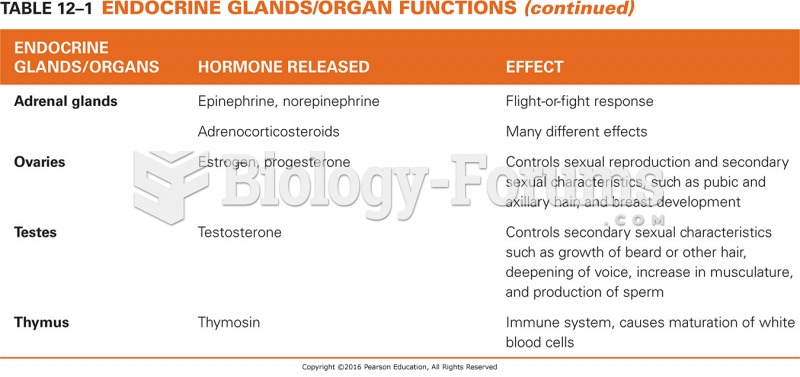|
|
|
There are over 65,000 known species of protozoa. About 10,000 species are parasitic.
Bacteria have been found alive in a lake buried one half mile under ice in Antarctica.
Multiple sclerosis is a condition wherein the body's nervous system is weakened by an autoimmune reaction that attacks the myelin sheaths of neurons.
There used to be a metric calendar, as well as metric clocks. The metric calendar, or "French Republican Calendar" divided the year into 12 months, but each month was divided into three 10-day weeks. Each day had 10 decimal hours. Each hour had 100 decimal minutes. Due to lack of popularity, the metric clocks and calendars were ended in 1795, three years after they had been first marketed.
When blood is exposed to air, it clots. Heparin allows the blood to come in direct contact with air without clotting.







